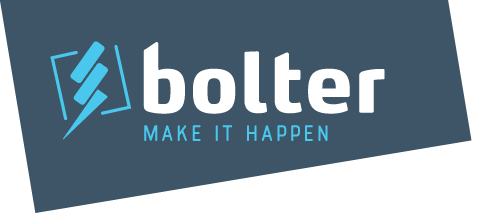Hiring a new employee is a pretty significant (and daunting) business decision. Aside from the thrill of being able to delegate work to someone else and freeing up your time, it is important that you know your obligations as a boss and employer and the risks that come as a result of hiring a new employee.
First off, you should consult with a legal advisor that specialises in workplace law. It is critical that you have a formal employment contract or agreement drafted and entered into. This is the safest way to approach hiring a new employee and to ensure that you don’t accidentally forget to include superannuation or chose the incorrect industrial award.
Before you offer someone employment, you should consider the following:
- Are they Australian Residents or here on a visa?. Only Australian citizens, New Zealand citizens and permanent residents are allowed to work in Australia, unless they have approval through a working visa arrangement. If the employee is a foreign national, we recommend that you speak to a legal adviser or consider checking out the Department of Home Affairs (DFAT) website for more information about sponsoring and employing foreign nationals.
- Employee or independent contractor? The status of the employee is really important to get right. There are different legal obligations for both employees and contractors, and it is important that you get this right as it affects tax, wage and superannuation.
If a worker is incorrectly classified as a contractor, when they are an employee, this can lead to potential unpaid entitlement or superannuation claims. It can also lead to severe penalties being imposed by the Fair Work Commission. Additionally, if a contractor develops IP while they are working for you (and you don’t address this within their contractor’s agreement), you risk the IP being owned by them. An easy tool to help determine whether your worker is an employee or a contractor is the Australian Government’s decision tool: https://www.ato.gov.au/business/employee-or-contractor/. - Ensure that the worker has the appropriate training and accreditation.
In certain industries, employees are required to have received training or have obtained a professional qualification (such as a professional membership, certificate or bachelors degrees). A great example is if an employee is required to work with children or minors. These employees will need to have received a valid working with children blue card issued by the Queensland Government. If an employee is serving alcohol, they are required to have completed a responsible service of alcohol (RSA) training course, similar to a barista. The need for employees to hold certain levels of accreditation is dependent on which industry your business operates within and what the duties of that employee will be. Consult a legal professional if you are ever unsure of your requirements. - Have you registered for PAYG withholding?
With PAYG withholding, employers collect tax from the payments they make to employees and contractors and send it to the ATO. This helps those people meet their own income tax liabilities. You should consider checking out the ATO’s website for further information or talk to your accountant about your obligations in this respect. https://www.ato.gov.au/business/payg-withholding/. - Have you factored in superannuation payments?
Superannuation is money that employers pay for their workers to provide for their retirement. Generally, if you pay an employee $450 or more before tax in a calendar month, you have to pay super on top of their wages. There are different issues to consider when considering superannuation payments. - Set up a system to manage payments and keep a record of workers.
Employees must be paid at least monthly and can be paid by one, or a combination of, the following:- cash
- cheque, money order or postal order, payable to the employee
- electronic funds transfer (i.e.. EFT or bank transfer).
Most awards or employment agreements will set out when employees must be paid (weekly, fortnightly or monthly). If it doesn’t, employees must be paid at least monthly. If you consider paying wages by cash, you and your employee should sign a record confirming the amount of money that has been paid each pay period.
These six steps are by no means an exhaustive list. We recommend that you visit the following government website, which has a checklist of an employer’s responsibilities when hiring a new employee: https://www.business.gov.au/people/hiring/taking-on-an-employee-checklist.
Below are four helpful tips to help inform you of some of your obligations when hiring a new employee:
- Be wary of any recruitment bias you may have. All candidates should be granted a fair and equal opportunity at being hired. This is regardless of race, gender, religion, ethnicity or age. Make sure that your job advertisement is worded appropriately.
- Know the award wages and payment responsibilities for your industry. Everyone has a legal right to a fair and decent wage. When you hire an employee, there are minimum pay rates, penalty rates, allowances, tax deductions and compulsory superannuation deposits. As a useful resource, the Fair Work Commission’s website is the best starting place to help get your head around paying your employees: https://www.fairwork.gov.au/. The Australian Government’s Business.com.au website also has some background information to help keep you informed: https://www.business.gov.au/people/hiring/pay-and-conditions/paying-your-employees.
- Make sure you have a professionally drafted employment contract. This will outline the rights and responsibilities of both parties and it will also ensure that your business complies with its obligations. See our article on employment contracts here .
- Be aware of your industry’s workers compensation laws. When a worker is sick or injured at work, you may be required to cover their wages. Each state has vastly different laws so it is important you brush up on the laws of your state.
It is important to note that this is not an exhaustive list of things to check and consider before hiring your first employee. If you are ever in doubt, feel free to reach out to the team at Bolter to discuss your employer responsibilities in more depth.
